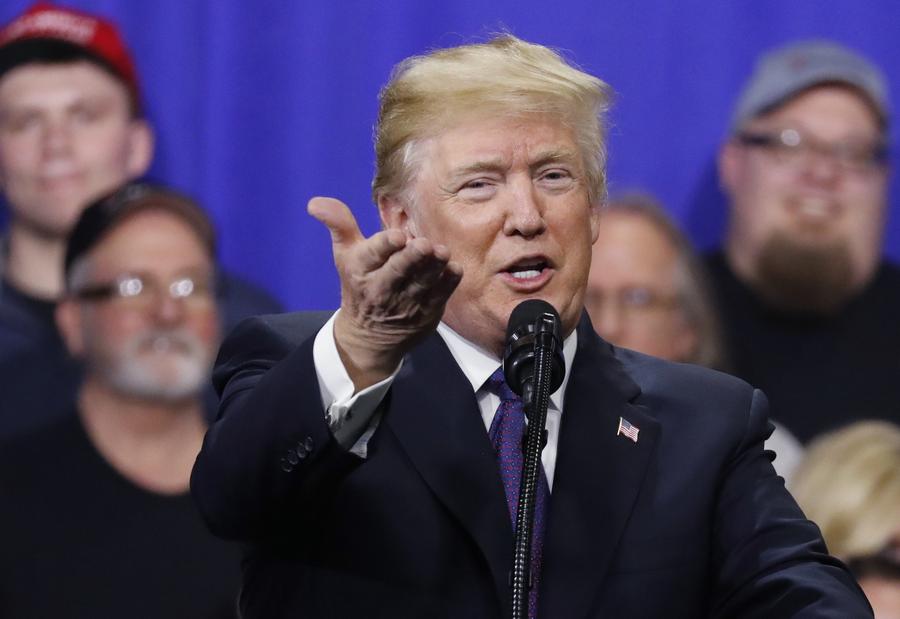Trump proposes fresh salvo of tariffs in his war for spoils: China Daily editorial


It is yet to be seen whether US President Donald Trump’s threat of a “reciprocal tax” on goods imported from countries that levy tariffs on US products was just a reiteration of his campaign trail slogans as some observers believe.
For the harm such tariffs would inflict on the world’s most important and most active trade ties, it would be better for the proposal to be what some critics assume — more bark than bite.
To this point, no details have been forthcoming, and reportedly nothing formal is in the works, although Trump promised progress “during the week and during the coming months”.
However, such influential tariffs would need the approval of Congress, and a similar idea of a border adjustment tax was shot down by congressional Republicans last year.
While Trump’s rhetoric on Monday might just be another bid to help the US in its endeavors to renegotiate trade deals, it is a costly miscalculation to underestimate the disruption he is bringing to the international trade scene.
Trump’s personal discontent with US trade relations with other nations, from China to the US’ allies and neighbors, is notoriously biased. His otherwise understandable preoccupation with reducing US trade deficits has been led astray by indiscriminate America-centrism and his overall refusal to accept widely accepted international trade protocols and practices, which are outcomes of mostly US-initiated and dominated trade negotiations under the framework of the World Trade Organization. Even the relatively low US duty structure was itself a negotiated outcome.
While blaming the present US duty structure for his country’s trade deficits, Trump is knowingly denying its historical contribution to the prosperity his country enjoys, as well as the benefits it brings to the average American consumer and business.
“A 10 percent tax on imports is akin to a 10 percent additional tax on your Walmart checkout,” says Christine McDaniel, a former trade economist at the White House.
If Trump honors his campaign promise to impose much higher tariffs on imported goods, it will significantly drive prices up for countless imported commodities, including daily necessities, making them unaffordable for ordinary Americans.
Considering the punitive tariffs his administration recently imposed on imported washing machines and solar panels, it is very likely Trump will press ahead with the “reciprocal tax”, even if not in a wholesale manner.
The US will gain little, but nevertheless its trade partners must act accordingly to protect themselves.
Today's Top News
- Talks tried and tested way to keep ties on track: China Daily editorial
- Shenzhou XVIII astronauts meet press after return from space
- China's annual express delivery volume tops 170 billion
- Growth momentum needs financing, housing, consumption
- Recruiters seek overseas graduates
- 2025 a crucial year to reflect on history






























